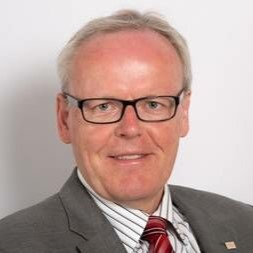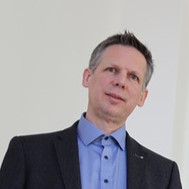SustainMV 2025
The Sustainability Summer School
Programme Overview
SustainMV will be happening for the fifth time this year! The summer school is jointly presented by all universities in Mecklenburg-Vorpommern – a federal state in the north of Germany. The overarching theme for this unique event is sustainability in all subject fields. Academics from all MV universities, who are all experts in their respective fields of sustainability, present their work and research. The focus is sustainability in the fields of Tourism, Renewable Energies, Digital & Technological Innovations, Recycling & Waste Management, Ecosystems and Social Sustainability.
Its consists of an online and an on-site part in Mecklenburg-Vorpommern.
Online Programme (19th – 21st August)

| 11:30 - 12:15 | 🙌 | Welcome to SustainMV 2025 | |
| 12:15 - 13:15 | 🌍 | Presentation with discussion "Sustainability as a Guiding Principle in Farm Management" |  Prof. Langosch University of Applied Sciences Neubrandenburg |
| 13:15 - 13:45 | ☕ | Break / Room for Exchange Take a break or use the opportunity to exchange with the other participants | |
| 13:45 - 14:00 | ⭐ | Uni Showcase: Neubrandenburg | |
| 14:00 - 15:00 | 🌍 | Presentation with discussion "Circular Economy as a Central Element for a Climate-neutral Society" This talk is about the circular economy and provides examples of how materials can be reused at the end of their life cycle to produce high-quality products and contribute to reducing greenhouse gas emissions. |  Dr. Ing. Haniyeh Jalalipour University of Rostock |
| 15:00 - 15:15 | ☕ | Break / Room for Exchange Take a break or use the opportunity to exchange with the other participants | |
| 15:15 - 16:15 | 🌍 | Presentation with discussion "Green Joining: The role of joining technology for sustainable production" Joining technology and sustainability are two important topics that are becoming increasingly important, especially in modern production and manufacturing. This is not just about the way in which materials are joined, but also about the environmental impact, conservation of resources and the long-term efficiency of processes. Joining technology refers to the processes used to join different workpieces, e.g. welding (melting process), bonding (bonding of surfaces using an adhesive), riveting (mechanical joining using forming processes) and screwing (mechanical connection using threads) Each of these processes has its specific advantages and disadvantages, depending on the application. The choice of joining technology can have a direct impact on the environmental balance in terms of 1. energy consumption 2. material efficiency 3. recyclability 4. avoidance of hazardous materials 5. durability and maintenance Overall, choosing the right joining technology in combination with sustainable materials and processes helps to reduce environmental impact, lower energy consumption and extend product life cycles. |  Prof. Fuchs University of Applied Sciences Stralsund |
| 16:15 - 16:30 | 👋 | Closing of the Day A brief closing statement to the day’s programme and pointers to extracurricular activities available. |
| 11:30 - 12:00 | 🙌 | Welcome to the Day | |
| 12:00 - 12:15 | Uni Showcase: Wismar | ||
| 12:15 - 13:15 | 🌍 | Presentation with discussion "tba" | tba |
| 13:15 - 13:45 | ☕ | Break / Room for Exchange Take a break or use the opportunity to exchange with the other participants | |
| 13:45 - 14:00 | ⭐ | Uni Showcase: Rostock | |
| 14:00 - 15:00 | 🌍 | Presentation with discussion "The Many Faces of Sustainability" A recent online article is aptly titled: “Sustainability – confusing term for a clever concept“. This nicely summaries both the beauty and challenge in dealing with this important concept. The idea of sustainability first emerged with regards to forestry, where it means never harvesting more than what the forest yields in new growth. The word “Nachhaltigkeit” (the German term for sustainability) was first used with this meaning in 1713. Since then the concept of sustainability has come a long way. In general terms, sustainability means meeting our own needs without compromising the ability of future generations to meet their own needs. However, this is not restricted to the natural environment but also extends to social and economic resources. Thus, sustainability goes beyond environmentalism and also encompasses social equity and economic development. Sustainability can also be understood as a movement which has its roots in social justice, conservationism or internationalism. By the end of the 20th century, many of these ideas were united under the roof of “sustainable development” and found their most prominent expression in the Sustainable Development Goals (SGD) as the current global agenda for reducing poverty and raising the quality of life. Sustainability as a political and strategic concept has its origin in the Brundtland Report “Our Common Future” of 1987. The report was concerned with the tension between the aspirations of mankind towards a better life on the one hand and the limitations imposed by nature on the other hand. The presentation traces the history of the concept of sustainability and critically discusses its many dimensions. |  Prof. Dr. Dosch University of Rostock |
| 15:00 - 15:15 | ☕ | Break / Room for Exchange Take a break or use the opportunity to exchange with the other participants | |
| 15:15 - 16:15 | 🌍 | Presentation with discussion "Applying Environmental Psychology: Promoting Sustainable Behaviour Change" What drives people to adopt sustainable behaviours - and what holds them back? In this interactive online session, we will explore key psychological mechanisms behind behaviour change and introduce findings from environmental psychology. Together, we will apply these insights to real-world challenges and discuss practical strategies for promoting sustainability. |  Miriam Finkhäuser University of Greifswald  Tobias Ihle University of Greifswald |
| 16:15 - 16:30 | 👋 | Closing of the Day A brief closing statement to the day’s programme and pointers to extracurricular activities available. |
| 11:30 - 12:15 | 🙌 | Welcome to the Day | |
| 12:15 - 13:15 | 🌍 | Presentation with discussion "Sustainable AI - From a Lighthouse to a Sea of Lights" We know that neither the Ocean nor other natural areas are infinite, but that the Earth is a closed system, and all its resources are limited. If we want to shape our existence in the long term with these scarce resources, we must keep our consumption within the corridor provided by the Earth system - in short, we must act sustainably. In view of the global challenges of our time, especially regarding dwindling resources, increasing natural hazards and rapidly advancing climate change, the question is more relevant than ever: What can the "tool Al" contribute to environmental protection? Following a brief introduction of the Leibniz Institute for Baltic Sea Research (IOW) and its "perspectives of coastal seas" the presentation will investigate the potential of Al to support marine research and stewardship. Towards this end, two in-depth studies will be presented, a) the utilization of Al to promote a digital twin addressing marine environmental effects from offshore windfarms, and b) on the application of deep learning for the assessment of microplastic litter in coastal zones and river areas. Finally, we will change flight level and investigate the top-level questions of Al as a "game changer" in the context of UN sustainable development goals. |  Prof. Dr. Zielinski University of Rostock |
| 13:15 - 13:45 | ☕ | Break / Room for Exchange Take a break or use the opportunity to exchange with the other participants | |
| 13:45 - 14:00 | ⭐ | Uni Showcase: Stralsund | |
| 14:00 - 15:00 | 🌍 | Presentation with discussion "Green Health IT: Sustainable Medical Informatics for an Eco-Friendly Healthcare System" Medical informatics plays a crucial role in the digital transformation of healthcare. But how sustainable are digital solutions? This talk explores the environmental footprint of the healthcare sector and demonstrates how sustainable IT strategies can help conserve resources and reduce emissions. Through innovative technologies such as energy-efficient data centers, AI-driven resource optimization, and telemedicine, it is important to explore how digital health can become more eco-friendly. Finally, we will discuss the challenges, opportunities, and future perspectives of sustainable medical informatics. |  Prof. Dr. sc. hum. Bönisch University of Applied Sciences Stralsund |
| 15:00 - 15:15 | ☕ | Break / Room for Exchange Take a break or use the opportunity to exchange with the other participants | |
| 15:15 - 16:15 | 🌍 | Closing and Farewell |
On-site Programme (25th August – 5th September)
The on-site programme will be published soon.